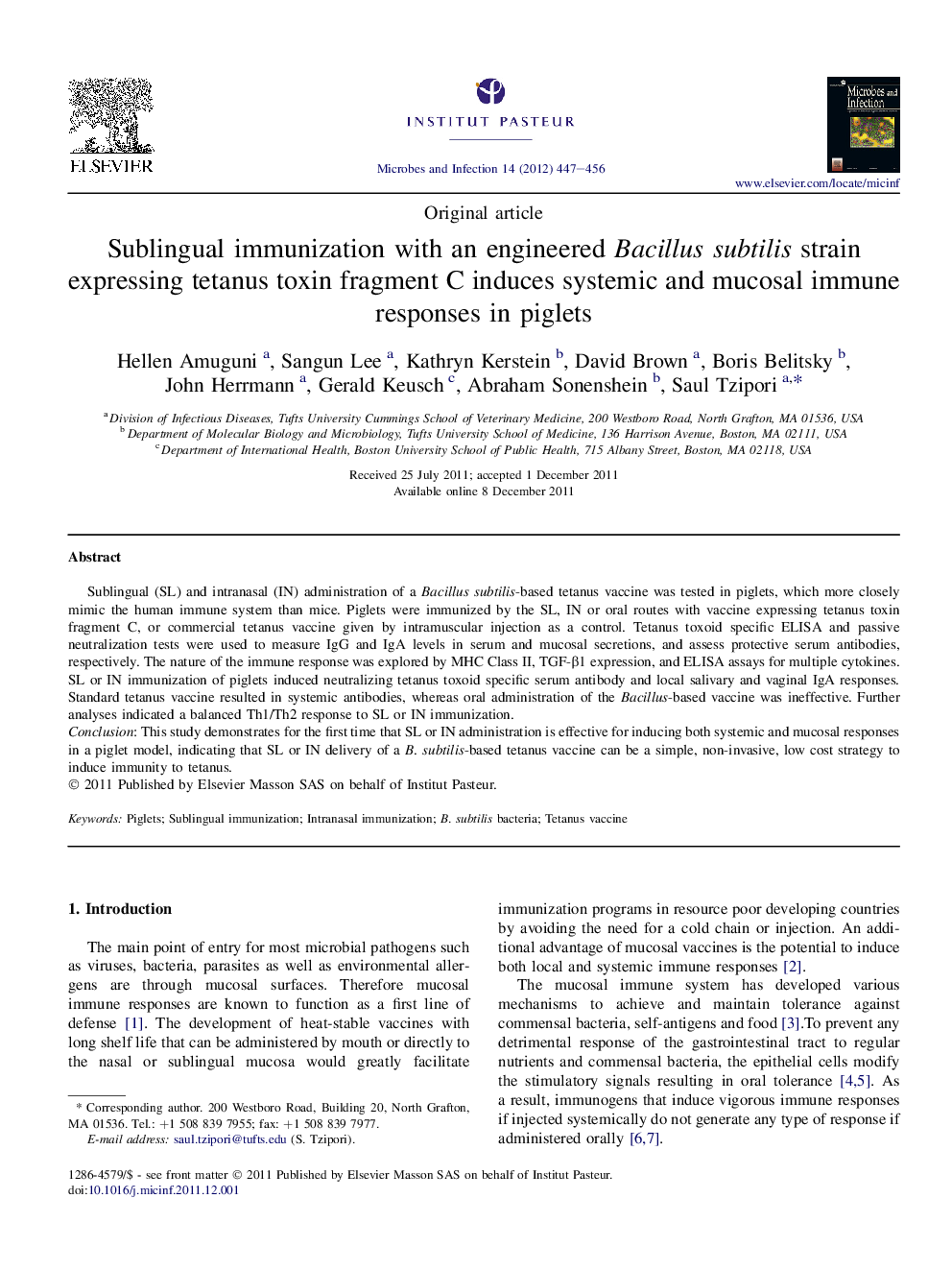| Article ID | Journal | Published Year | Pages | File Type |
|---|---|---|---|---|
| 3415028 | Microbes and Infection | 2012 | 10 Pages |
Sublingual (SL) and intranasal (IN) administration of a Bacillus subtilis-based tetanus vaccine was tested in piglets, which more closely mimic the human immune system than mice. Piglets were immunized by the SL, IN or oral routes with vaccine expressing tetanus toxin fragment C, or commercial tetanus vaccine given by intramuscular injection as a control. Tetanus toxoid specific ELISA and passive neutralization tests were used to measure IgG and IgA levels in serum and mucosal secretions, and assess protective serum antibodies, respectively. The nature of the immune response was explored by MHC Class II, TGF-β1 expression, and ELISA assays for multiple cytokines. SL or IN immunization of piglets induced neutralizing tetanus toxoid specific serum antibody and local salivary and vaginal IgA responses. Standard tetanus vaccine resulted in systemic antibodies, whereas oral administration of the Bacillus-based vaccine was ineffective. Further analyses indicated a balanced Th1/Th2 response to SL or IN immunization.ConclusionThis study demonstrates for the first time that SL or IN administration is effective for inducing both systemic and mucosal responses in a piglet model, indicating that SL or IN delivery of a B. subtilis-based tetanus vaccine can be a simple, non-invasive, low cost strategy to induce immunity to tetanus.
